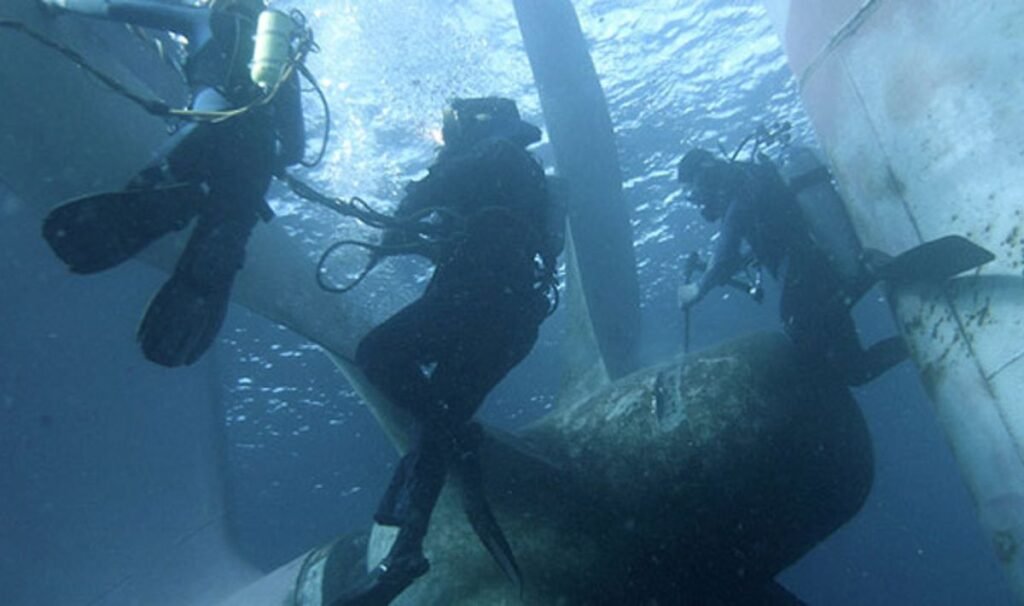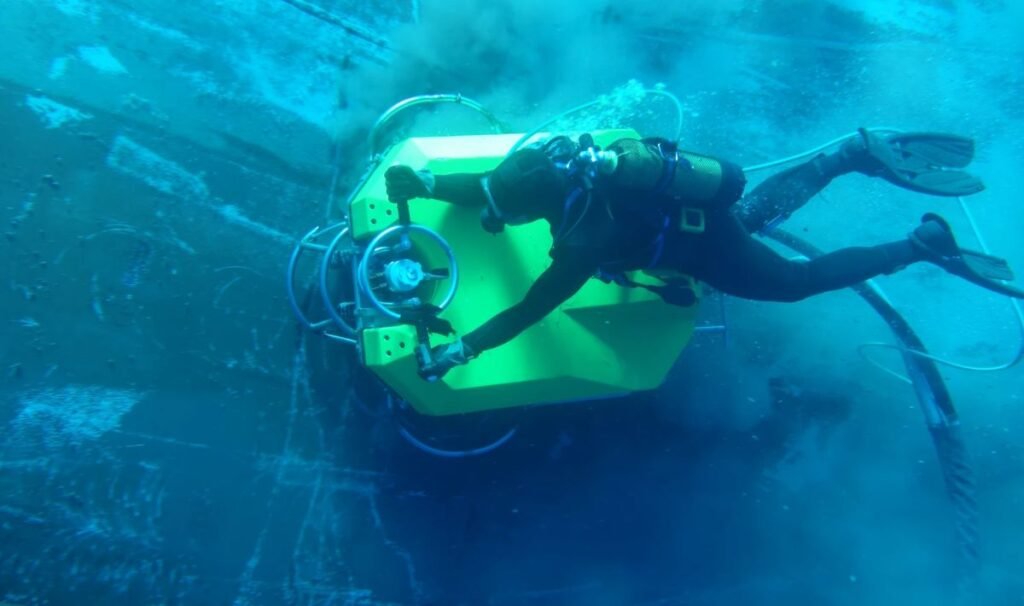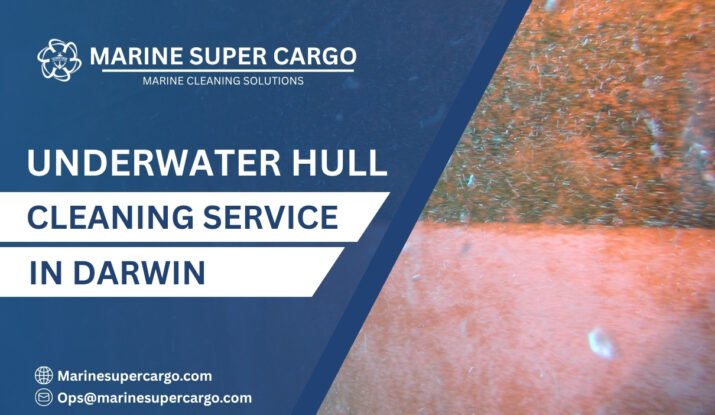Let’s set the scene: It’s a classic, sun-streaked Darwin morning, and you’re ready to take your boat out on the water. But as the hull slices through the blue, do you ever wonder what might be hitching a ride under the surface? If that’s you, you’re in the right place. Underwater hull cleaning in Darwin isn’t just about sparkling looks—it’s your ticket to peak vessel performance, lower costs, and a cleaner environment. Dive with me into everything you never knew you needed to know about keeping your hull squeaky clean beneath the waves.
Why Underwater Hull Cleaning in Darwin Matters
Boosting Vessel Performance
Imagine sailing with a hull caked in marine growth—like running a race with ankle weights. Fouling slows your boat, burns more fuel, and can slash your speed by up to 10%. A clean hull means slicing through the water with grace, maximizing speed and efficiency. Whether you’re a yachtie, a fisher, or the proud captain of a working vessel, performance is everything.
Preventing Costly Repairs
That carpet of barnacles and algae is more than unsightly. Over time, it corrodes propellers, blocks water inlets, and stresses your engine. Left unchecked, you could find yourself paying for repairs that make your wallet cry out in pain. Routine underwater hull cleaning in Darwin is the ounce of prevention that saves a pound of cure.

The Unique Marine Environment of Underwater Hull Cleaning in Darwin
Local Conditions and Their Impact on Hulls
Darwin sits at the crossroads of tropical tides, intense sunlight, and teeming marine life. Warm waters are a paradise for growth below the waterline. It’s a little like gardening underwater—if you don’t tend your patch, it flourishes, just not with what you want.
Common Fouling Organisms in Darwin Waters
From stubborn barnacles and slimy algae to the occasional hitchhiking crab, Darwin’s waters host a vibrant cast of characters. These critters aren’t just freeloaders; some can invade your pipework, others can breach paint barriers, and a few might even carry biosecurity risks.
How Underwater Hull Cleaning in Darwin Works
Manual vs. Robotic Cleaning
You’ve options: divers with scrapers and brushes (old-school but effective), or cutting-edge robotic cleaners that use water jets and cameras. Robots are the new rock stars in ports, providing fast, efficient hull cleaning with minimal environmental mess.
Steps Professionals Follow
It usually starts with a detailed underwater hull inspection—sometimes diving teams, sometimes remote-controlled robots. The team checks fouling type and extent, then uses tailored tools: from soft-bristled brushing for delicate paint, to robust scraping for hardcore barnacles. Dislodged material is trapped, filtered, and disposed of securely. For more persistent pests, some providers use eco-friendly chemicals or high-pressure seawater jets, keeping your hull and the harbor pristine.
Regulatory Compliance in Darwin
Biosecurity Inspections and Requirements
Darwin’s role as a bustling port means tight regulations, aligned with national and international maritime standards including those from IMO.
Where and When Inspections Occur
Inspections typically happen at spots like the Cullen Bay pontoon or, occasionally, the Fannie Bay public anchorage. Availability is Monday, Wednesday, or Friday, 8 am–4 pm (excluding holidays), always weather and tide permitting.
What to Expect During the Process
Be ready to be onboard during the inspection. Trained divers (sometimes government, sometimes private contractors) will check your hull. If treatment is required—especially for internal seawater systems—a disinfectant may be applied, which has to sit in pipes for around 10 hours. During this time, you’ll be moored and unable to use affected systems.
Benefits of Regular Underwater Hull Cleaning in Darwin
Economic Savings
A clean hull dramatically slashes fuel consumption. Studies and real-world logs show up to 10% savings, putting real dollars back in your cruising budget. Over time, those savings add up fast, especially with rising fuel prices.
Extended Vessel Lifespan
Keeping fouling at bay helps your hull and onboard systems last longer, reducing wear and protecting your investment. Routine cleaning prevents slow-building issues that could shorten your vessel’s glory days on the water.
Environmental Impact
Dirty hulls can act as vectors for invasive species, threatening Darwin’s unique marine ecosystems. Keeping your hull pristine is a direct line of defense for local marine biodiversity—it’s eco-warrioring in action.
Choosing a Provider of Underwater Hull Cleaning in Darwin
Key Qualities to Consider
Not all hull cleaning services are built the same. Look for:
- Certified, experienced divers or technicians with up-to-date equipment
- Adherence to biosecurity regulations
- Eco-friendly cleaning methods
- Transparent pricing and clear scheduling
Local Service Providers
Darwin boasts several reputable marine service hubs—some equipped for both small boats and hefty commercial vessels up to 150 tonnes. Many work closely with the local biosecurity authorities, making compliance a breeze.
DIY vs. Professional Underwater Hull Cleaning in Darwin
Pros and Cons
DIY hull cleaning can seem appealing for the hands-on skipper. It is possible with the right equipment—think mask, snorkel, scraper, and plenty of elbow grease. However, there are drawbacks:
- Safety hazards (marine life, currents, limited visibility)
- Incomplete cleaning, particularly in tricky spots
- Risk of damaging hull coatings or paint
Professionals bring specialized tools, experience, and strict adherence to regulations. They’ll often spot emerging problems long before you do, saving you from future headaches.
Safety Considerations
Diving beneath your boat is risky, especially in tidal Darwin waters. If you’re not fully trained and kitted out, it’s safer to leave it to the pros.
Tips for Keeping Your Underwater Hull Cleaning in Darwin Longer
Best Anti-Fouling Paints and Coatings
Investing in quality anti-fouling paint is like putting armor on your boat. Look for products suited to warm, tropical waters, and reapply as recommended—generally every 1–2 years, depending on usage and paint type. Some paints even boast eco-friendly formulas to keep local sea life safe while stopping invaders.

Maintenance Routines
Even with top-notch anti-fouling, regular checks are key. Give your hull a periodic inspection, touch up paint where necessary, and remove minor growths before they multiply. Keep a cleaning log—it takes the guesswork out of scheduling upkeep.
Underwater Hull Cleaning and Sustainability
Protecting the Reef and Local Ecosystem
Darwin’s proximity to stunning reefs and mangroves means every hull cleaning job needs an eco-conscious approach. By using methods that capture debris and avoid harsh chemicals, responsible cleaners help protect these underwater treasures for future generations.
Eco-Friendly Cleaning Practices
These practices are increasingly promoted by industry bodies like Ports Australia, which supports sustainable port operations across Australia.
Conclusion
You’ve now got the lowdown on underwater hull cleaning in Darwin—from why it’s mission-critical for your vessel’s health, to how professional cleaning keeps you compliant, economical, and eco-friendly. Think of hull cleaning like dental hygiene for your boat: it’s the secret behind every great cruise, every successful fishing run, every journey to the horizon. So next time you head out on Darwin’s brilliant waters, you’ll know what lies beneath—and how to keep it in shipshape.
FAQ:
1. What’s the best season for underwater hull cleaning in Darwin?
Darwin’s tropical climate allows for year-round cleaning, but the dry season (May–September) offers the calmest waters and clearest visibility.
2. How often should I schedule professional Underwater Hull Cleaning in Darwin?
Most vessels benefit from cleaning every 6–12 months, though usage and local conditions can stretch or shorten this timetable.
3. Can I clean the hull myself without breaking regulations?
DIY is possible, but you must strictly avoid spreading marine pests or debris and comply with biosecurity requirements—failure to do so can bring legal woe.
4. Will hull cleaning harm my anti-fouling paint?
Not with the right technique and equipment. Professionals use soft brushes or gentle water jets to avoid damaging coatings—another reason to leave it to the experts.


